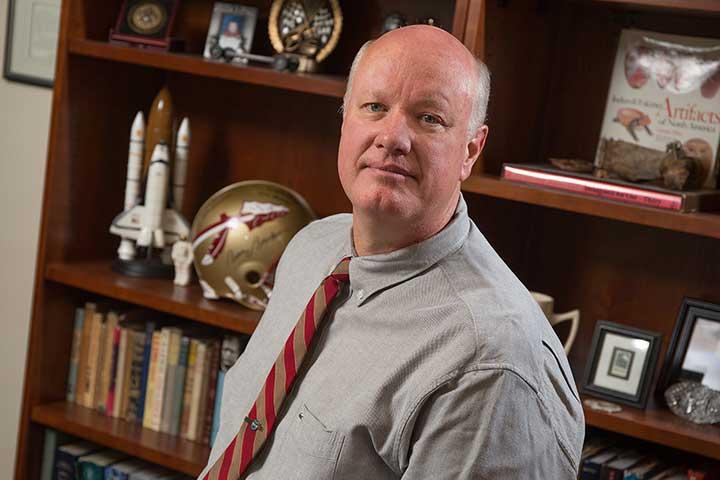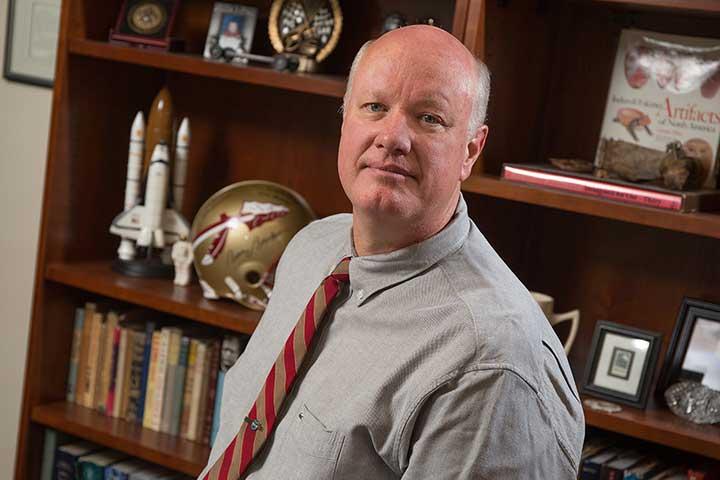
Credit: FSU Photography Services
TALLAHASSEE, Fla. — A Florida State University researcher will lead a joint U.S.-Russia project that will examine the effect of space travel on astronauts' vision, an ongoing problem that NASA has been eager to solve.
"The issue of vision impairment is very important to NASA," said Michael Delp, dean of the College Human Sciences and the lead investigator on the project. "When astronauts go into space, they lose bone density and muscle mass, but that's mostly preventable or recoverable. The vision may not be, and not everyone is willing to risk their sight."
The work will be funded by a $750,000 grant from NASA.
In recent years, NASA has spearheaded research into vision problems experienced by astronauts returning from space. On shorter trips, astronauts have often experienced minor vision changes that eventually self-corrected. But longer trips to space have caused more structural changes to the eye that have permanently altered astronauts' ability to see.
Delp and colleagues at the Russian Academy of Sciences previously collaborated on a study that found space travel may diminish the body's ability to regulate blood flowing to the brain, which could contribute to temporary or permanent changes in vision for astronauts.
For this study, researchers will send male mice into space on a SpaceX rocket in August 2017. The mice will live at the International Space Station for 30 days and then return to Earth to be recovered by the U.S. Navy off the California coast.
Scientists will then examine changes to the lymphatic and vascular functions to see how that may affect vision.
"We're looking at cerebral arteries, cerebral veins and the lymphatics that drain the brain to see if vascular function in any of those areas are changed with micro gravity," Delp said. "We're also looking at the blood brain barrier. So if the vessels become leaky and allow fluid out into the brain, that might be another reason we're seeing vision problems in astronauts."
Delp's research has been funded by NASA for several decades. Prior to becoming dean of the College of Human Sciences in 2013, he worked as a professor at the University of Florida, West Virginia University and Texas A&M University. He received his doctoral degree from University of Georgia.
The grant will fund three graduate students and one postdoctoral researcher at Florida State University, as well as scientists and graduate students from Texas A&M University.
###
Media Contact
Kathleen Haughney
[email protected]
850-644-1489
@floridastate
http://www.fsu.edu





